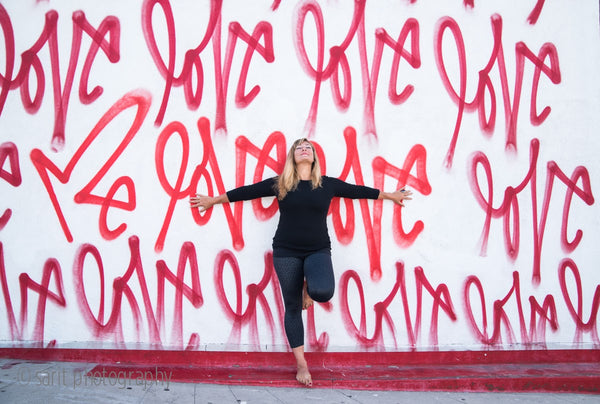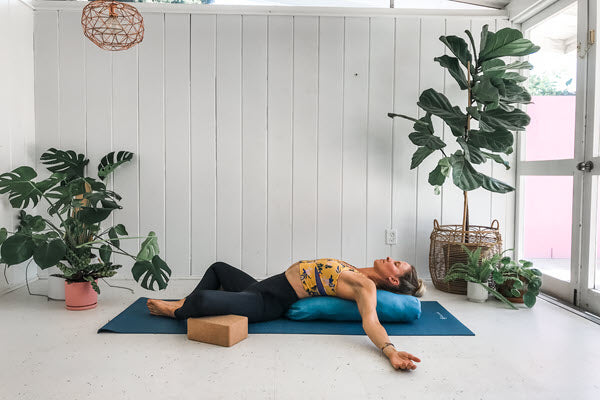Coffee: Is it good or bad for us? You might get media whiplash trying to figure that out. The truth is, I find this subject to be as confusing as you probably do.
After all, the media certainly doesn’t help clarify whether America’s favorite morning beverage is going to land you in the doc’s office or set you free with a clean bill of health. It’s no wonder so many of you shrug your shoulders in utter confusion as you refill your morning mug and get on with your day!
I know all about this adoration of coffee. I, too, was smitten and enamored with Coffea Arabica. We had our courtship during the 1990s, when I worked more than 80 hours in the emergency room and saw 30 to 40 patients a day.
I traded sleep for espresso, authentic energy for Haagen Daaz coffee ice cream and normal circadian rhythms for high-speed, caffeinated adrenaline rushes.
But then, my body began to communicate to me what I had been attempting to ignore — that I needed to slow down and let the natural systems assume their proper course. You can read more about how I successfully turned my health around here.
As I began to tune into my body and provide it with what it really wanted — fresh, whole, real, unprocessed foods; sleep; relaxation; and the time to enjoy the life I had created for myself and my family — I was able to break up with coffee and make up with my health.
You can too, and I’m going to tell you how. But first, let’s discuss what makes coffee such a hot topic widely disputed in today’s health circles.
Coffee and disease
While there are many controversies surrounding coffee’s role in the prevention of Parkinson’s Disease and breast cancer, I’m mostly interested in the conversation relating to its effect on blood sugar metabolism. If you have read my latest book, The Blood Sugar Solution, then you already know how insulin resistance and inflammation are at the core of modern-day chronic diseases.
The single most important healthy habit any of us can adopt is to manage our blood sugar by decreasing the triggers that push it out of balance. Curious if coffee is one of those triggers?
In the 1980s and 1990s, several studies were done to investigate the correlation between coffee and diabetes. Many of those studies reported that there is an inverse dose-dependent association with the risk of Type 2 diabetes. This means that for reasons still unclear, all those research studies found that the more coffee people with normal blood sugar drank, the less risk appeared for developing Type 2 diabetes.
Not surprisingly, the news channels immediately sounded the bell that coffee was protective, and we all enjoyed our “cup of Joe” without any remorse.
Until the next report.
Some curious minds wanted to know exactly who was protected. And why? Andhow? These subsequent studies showed that in people with Type 2 diabetes, coffee intake was correlated with insulin spikes and increased blood sugar after a meal. Further research has shown that the caffeine in coffee might be the culprit responsible for the secretion of higher levels of insulin from the pancreas.
Clearly, higher insulin and glucose levels are not what we want to bestow on a body healing from insulin resistance. Considering that diabesity affects nearly 1.7 billion people worldwide, the nightly news now sounded the alarm of caution that perhaps our collective coffee habit is a detrimental addiction that needs to be kicked to the curb.
So, while certain populations of people may tolerate coffee and even enjoy some health benefits, it is evident that it is not for everyone. That’s why I ask anyone on my program to remove it from their diet.
If you’re reading this, chances are that either you or someone you care about is sick, inflamed, hormonally imbalanced, nutritionally compromised, overworked, stressed out, fatigued, depressed and/or toxic. And coffee is not a medicine that will aid in your healing.
10 reasons to kick your coffee habit
- The caffeine in coffee increases catecholamines, your stress hormones. The stress response elicits cortisol and increases insulin. Insulin increases inflammation, and this makes you feel lousy.
- Habituation to caffeine decreases insulin sensitivity, making it difficult for your cells to respond appropriately to blood sugar. High blood sugar levels lead to arterial deterioration and increased risk of mortality related to cardiovascular disease.
- Unfiltered coffee has the highest amount of beneficial antioxidants, yet also leaks the most diterpenes into your system. These diterpenes have been linked to higher levels of triglycerides, LDL and VLDL levels.
- The helpful chlorogenic acids that may delay glucose absorption in the intestine have also been shown to increase homocysteine levels — an indicator for increased risk of cardiovascular disease, which tends to be elevated in diabesity.
- The acidity of coffee is associated with digestive discomfort, indigestion, heart burn, GERD and dysbiosis (imbalances in your gut flora).
- Addiction is often an issue with coffee drinkers and makes it really difficult to rely on the body’s natural source of energy. Ask any coffee drinker how it feels to withdraw from coffee, and you may mistake their story for that of a drug addict’s…
- Associative addictions trend with coffee. Who doesn’t immediately think of warm, frothy sweet cream and sugar when they picture coffee? Surely the business of coffee has inspired a culture addicted to the sugary, fatty tastes of what has become more of a meal than a drink! That morning latte is the epitome of food lacking nutrition density yet packing energy.
- 5-HIA, an organic acid and component of the neurotransmitter serotonin (the happy chemical) seen in the urine tends to be elevated in coffee drinkers, which means they may be at risk for lower levels of serotonin synthesis in the brain. Serotonin is necessary for normal sleep, bowel function, mood and energy levels. It is a vicious cycle, as caffeine can disrupt sleep and promote anxiety and depression. We all know someone who tends to be tired, wired and over-caffeinated!
- Elevated urinary excretion of important minerals such as calcium, magnesium and potassium have been noted in coffee drinkers. An imbalance in your electrolyte status can lead to serious systemic complications.
- Constituents in coffee can interfere with normal drug metabolism and detoxification in the liver, making it difficult to regulate the normal detoxification process in the liver. Another issue to be aware of with coffee intake is how certain medications such as levothyroxine (thyroid) as well as tricyclic antidepressants are poorly absorbed, making symptoms curiously worse for patients.
So now what? If you think you can’t cut that coffee out, think again. I did it and now I want you to feel the same level of renewal and restoration I experienced.
It’s a wise experiment to take a break from coffee and see what it feels like to live your life on your own fuel. Remove coffee and caffeine safely from your system and see how authentically energized you feel!
How to avoid caffeine withdrawal symptoms
Those who consume the most caffeine, alcohol and sugar tend to have the most difficulty giving up coffee initially. In any event, symptoms of withdrawal usually disappear after three or four days. It is best to slowly reduce your intake of caffeine and coffee. Here are some tips to do it right:
- Make sure you drink at least six to eight glasses of filtered water daily. Instead of coffee in the morning, drink some warm water with freshly-squeezed lemon juice.
- The best water to drink is water that has been passed through a filtering process. Common and inexpensive filters are available, such as carbon filters (the ones Brita makes). The best filter is a reverse osmosis filter that puts the water through a multi-step process to remove microbes, pesticides, metals and other toxins. This can be installed under the sink. It’s a great filtering system and cheaper over the long run. Avoid water in plastic bottles, which contain phthalates, a toxic petrochemical. Mineral water or still water in glass bottles is also acceptable.
- To prevent headaches, make sure your bowels are clean. If you tend toward constipation, follow the steps to address constipation in my book The UltraSimple Diet or work a nutrition coaches.
- If you feel tired after giving up coffee, allow more time for sleep.
- Take 1,000 mg buffered vitamin C with breakfast and dinner.
- Make sure you exercise daily to help fight off fatigue. Even simple walking is good — 30 minutes daily.
- Some people rely on substituting coffee for real food. When you are hungry make sure to eat and do not let your blood sugar get low. Have some protein in the afternoon such as a handful of nuts or seeds like almonds, pecans, walnuts or pumpkin seeds; cooked beans; or a piece of steamed or baked fish.
- If you’re irritable or have trouble sleeping, take a combination of calcium citrate 500 mg and magnesium citrate 250 mg before bed.
- Drink one to three cups of green tea a day. The small amount of caffeine won’t hurt and the antioxidants will heal.
- Take a sauna or heat therapy in a bath. See my book The Ultra Simple Diet for how to create an UltraBath.
- Practice pressing the pause button. Withdrawal can be stressful and research has shown that meditation and other mindful activities can help calm an overstimulated and stressed system while boosting the immune system.
- Keep a journal and track your symptoms. Note the difference in quality of energy you experience while off of coffee.
- Consider a complete elimination program and avoid all refined sugars, flours, caffeine, alcohol, dairy, gluten and any other addictive substance. By allowing certain triggers to stay in the diet the body stays on the vicious cycle of cravings and addictive behavior. Reset your biology by eliminating all these dietary triggers for inflammation and fatigue.
I know this is a difficult goal, but I assure you that your body and mind will thank you. The sense of calm, clarity and restful sleep will reward you with the simple pleasures of innate health and an energy that is rightfully yours.
To your good health,
Mark Hyman, M.D.




